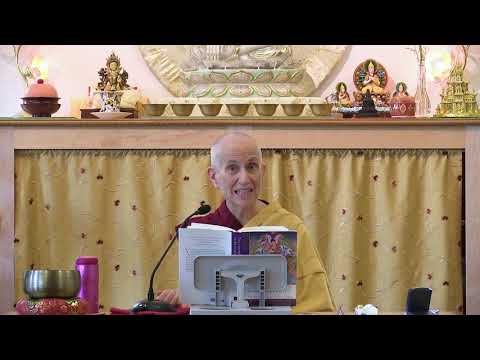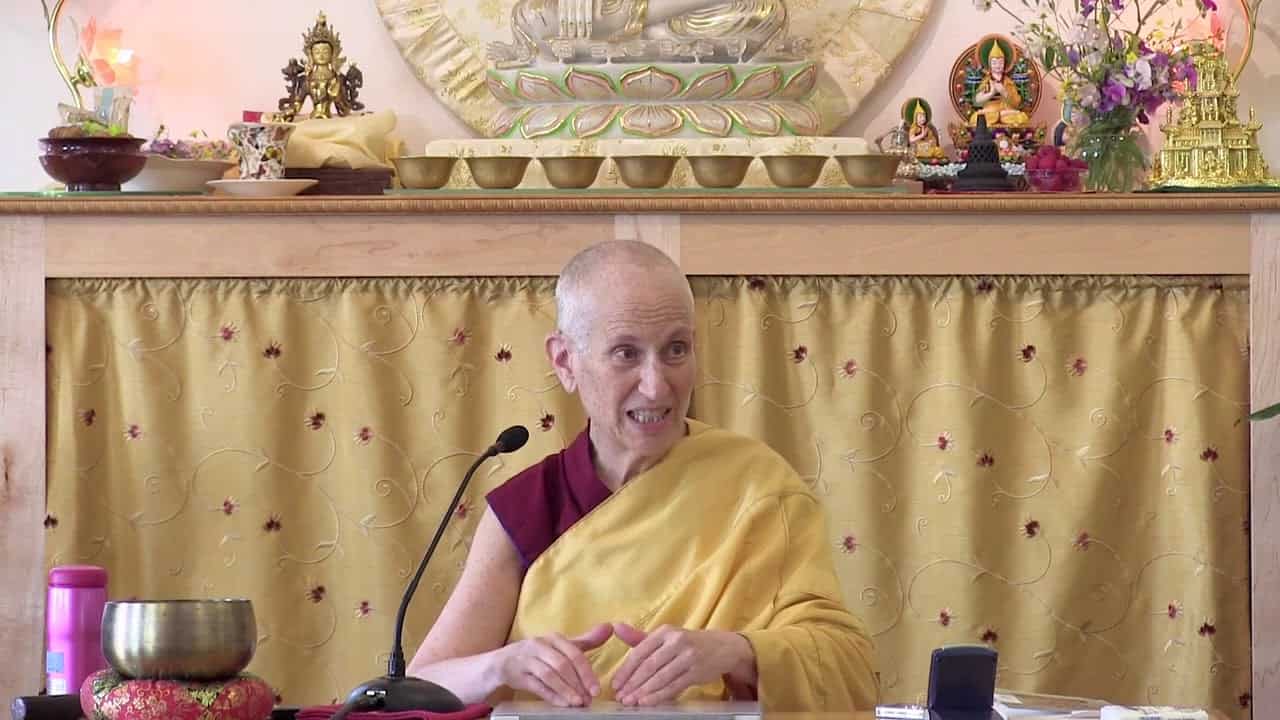All others are just like me
Seven Point Mind Training by Ven Sangye Khadro - Part 3
Part of a series of 12 teachings by Venerable Sangye Khadro given online at Amitabha Buddhist Centre from July to September 2020.
- Short review of the four preliminaries
- Second point – cultivation of bodhicitta, the awakening mind
- The two types of bodhicitta: conventional and ultimate
- The benefits of cultivating bodhicitta
- Two methods for developing bodhicitta
- the sevenfold cause and effect method
- equalizing and exchanging self and others
- How to equalize and exchange oneself and others? Contemplating:
- all sentient beings wish to be happy and free from suffering, have Buddha nature, and are in samsara – just like me
- the disadvantages of self-centeredness
- the advantages of altruism
Venerable Sangye Khadro
California-born, Venerable Sangye Khadro ordained as a Buddhist nun at Kopan Monastery in 1974 and is a longtime friend and colleague of Abbey founder Venerable Thubten Chodron. She took bhikshuni (full) ordination in 1988. While studying at Nalanda Monastery in France in the 1980s, she helped to start the Dorje Pamo Nunnery, along with Venerable Chodron. Venerable Sangye Khadro has studied with many Buddhist masters including Lama Zopa Rinpoche, Lama Yeshe, His Holiness the Dalai Lama, Geshe Ngawang Dhargyey, and Khensur Jampa Tegchok. At her teachers’ request, she began teaching in 1980 and has since taught in countries around the world, occasionally taking time off for personal retreats. She served as resident teacher in Buddha House, Australia, Amitabha Buddhist Centre in Singapore, and the FPMT centre in Denmark. From 2008-2015, she followed the Masters Program at the Lama Tsong Khapa Institute in Italy. Venerable has authored a number books found here, including the best-selling How to Meditate. She has taught at Sravasti Abbey since 2017 and is now a full-time resident.


